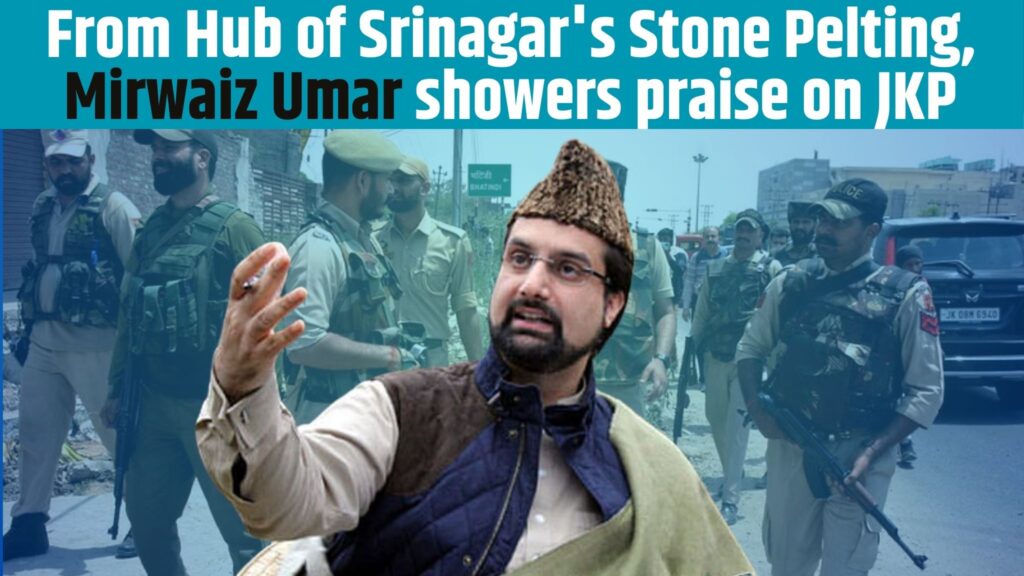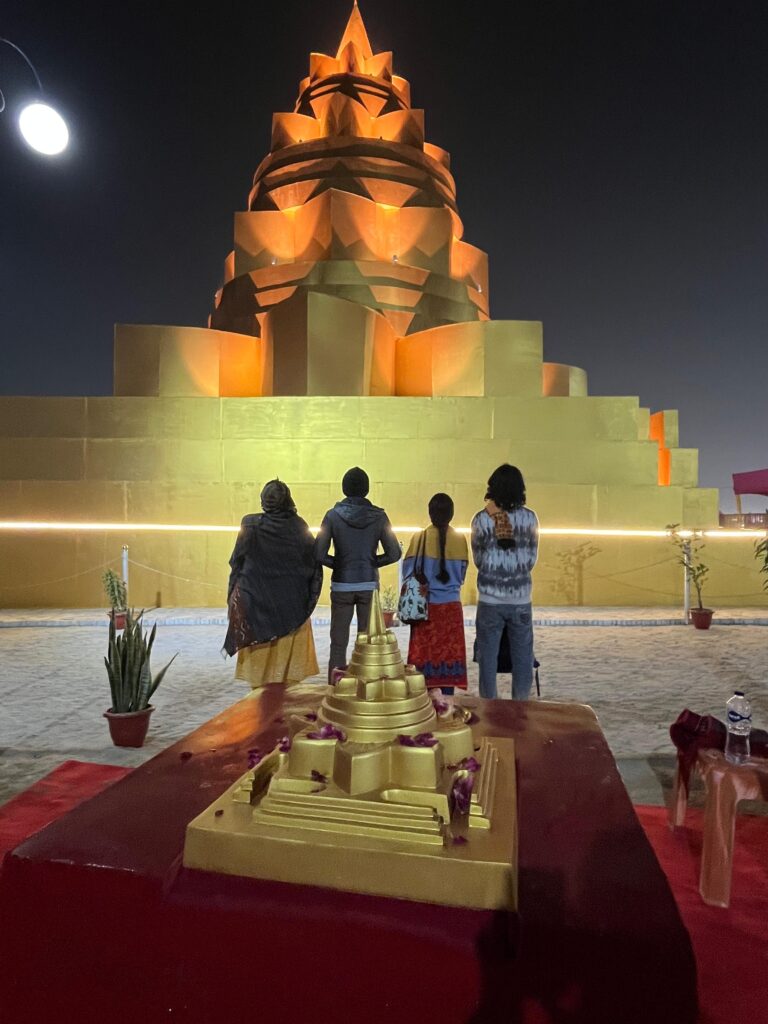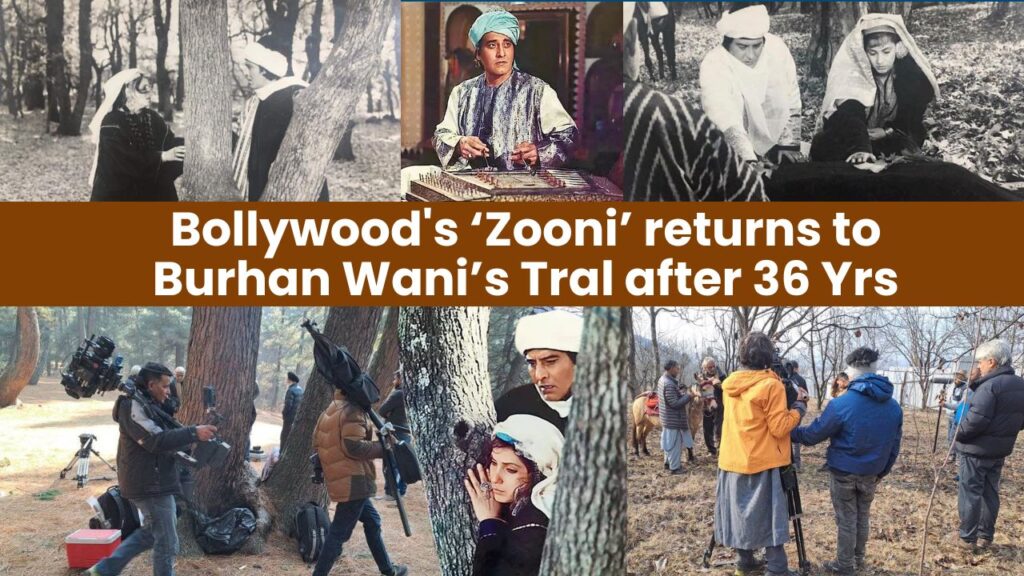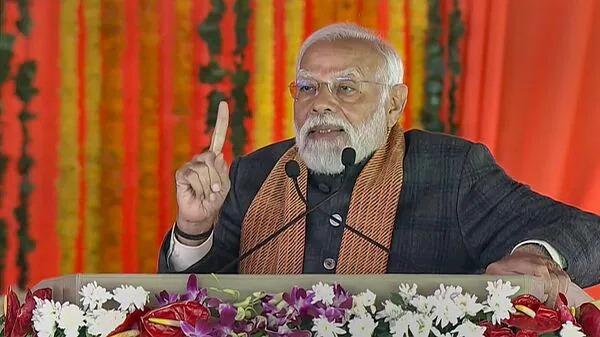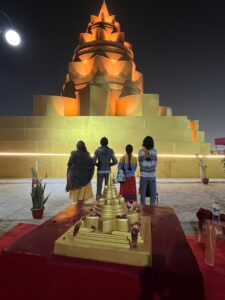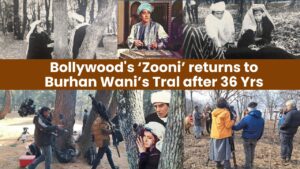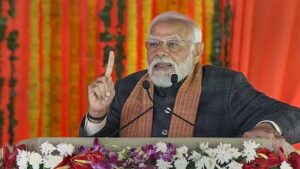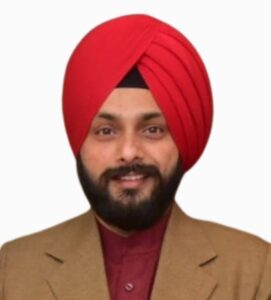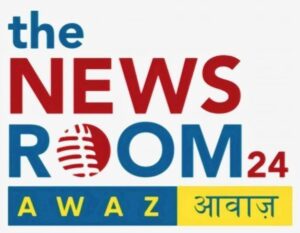First in his lifetime, Chairman of Hurriyat Conference announces support to “all the good works of the State”
In the afternoon on Sunday, Kashmir’s separatist cleric-politician Mirwaiz Umar Farooq did what he has never done in his 34-year-long political career. Mirwaiz, the Chairman of the Valley’s separatist conglomerate Hurriyat Conference showered praises on the Jammu and Kashmir Police during his address at Masjid Ali Saani near Eidgah, which used to be a hub of the anti-Police demonstrations and stone pelting till 2019.
Around this place, mobs of stone pelters attacked the Police vehicles and bunkers. Videos of the clashes, including the one which contained horrific images of the stone pelters hitting a Police vehicle and one of the rioters getting hit and being run over by the bulletproof bunker, are still there on the internet. Most of such violent attacks from Nowhatta to Eidgah, including the lynching of the Deputy Superintendent of Police Mohammad Ayub Pandit, took place in this area of Mirwaiz Umar’s followers in downtown Srinagar.
Days after the senior separatist leader Prof. Abdul Gani Bhat’s admission of the failure of the “struggle for azadi”, Mirwaiz Umar appreciated the Police crackdown on the drug network.
It is for the first time in his political career—since the day his father Mirwaiz Maulvi Mohammad Farooq was assassinated in May 1990 and Mirwaiz Umar was anointed as his successor—that the senior separatist leader not only praised the J&K Police for its anti-drug crackdown but also offered support to “all the good works of the State, the government”.
Mirwaiz Umar, who is also the head of his political organisation Awami Action Committee (AAC) and the religious organisation Anjuman-e-Nusratul Islam, was addressing a 1,500-strong congregation at Masjid Ali Saani, near Eidgah. It was a religious propagation and reformative gathering, joined mostly by clerics and their followers.
During the course of his speech, Mirwaiz said that the Jammu and Kashmir Police’s crackdown on the drug mafia, which according to him, is an inter-State network, was highly commendable. Without any equivocation, Mirwaiz said that the people of Kashmir would acknowledge and praise any good work by the Police and the government. He stressed on “the most stringent action” against anybody involved in and associated with the drug mafia.
Mirwaiz said that a large number of drug addicts and others associated with this social menace were being seen carrying out their activities at several public places including the vicinity of the grand “Aali Masjid” in the Eidgah area.
Mirwaiz Umar’s praise of the Police is significant in the sense that never before has he appreciated any ‘good work’ of the J&K Police. Eversince the Hurriyat’s foundation day in 1993, when Mirwaiz was declared as the amalgam’s first chairman, all the separatist leaders have been viewing Police and security forces as the “enemies” of the people of Kashmir and their separatist movement.
Most of the separatist leaders invariably held J&K Police as “an organ of the Government of India, responsible for killing thousands of Kashmir’s militants and civilians”. Even after enjoying Police protection and protocol, the separatist leaders used to demonise the J&K Police as a “State organ strengthening the Indian military occupation in Jammu and Kashmir”.
While the mainstream politicians competitively advocated the separatists’ release from jails and opposed the Police actions against them, the separatists contrarily called them ‘traitors’, ‘killers’ and ‘Indian agents’. They even labelled the followers of the mainstream politicians as “enemies of Kashmir’s azadi movement”. Some of them even called for “social boycott” to all mainstream politicians, their followers and Police officers.
It was only on one occasion, in July 2000, that Mirwaiz Umar drove straight to Gupkar Road and offered condolences to then Chief Minister Dr Farooq Abdullah on the death of his mother, Begam Akbar Jehan. Mirwaiz justified his act but many in the separatist camp lambasted him and projected him as a suspect in the ‘azadi camp’.
Years later, Mirwaiz attended an event of remembrance of the prominent Kashmiri journalist and the founder-editor of the Urdu daily “Aftab”, Khwaja Sonaullah Bhat, at Sher-e-Kashmir International Conference Centre (SKICC). It was also attended by the then Chief Minister Ghulam Nabi Azad, former Chief Minister Dr Farooq Abdullah and the JKLF chairman Yasin Malik.
On some occasions, some of the separatist leaders, who were themselves protected by J&K Police, sought to differentiate between the J&K Police’s counterinsurgent Special Operations Group (SOG), initially known as Special Task Force (STF), and other wings of the Police organisation.
However, in most of their speeches and statements, they demonised the entire Police and rarely condemned the killings of the Police personnel and their relatives in terror attacks.
Mirwaiz Umar’s statement in praise of the Police and the government—significantly at a time when J&K is a Union Territory and its Police is directly controlled and administered by the Union Ministry of Home Affairs—is obviously a remarkable setback for the votaries of Kashmir’s azadi and separation from India. It came out days after Prof. Abdul Gani Bhat’s video, declaring the separatist movement as a “directionless struggle”, went viral in the social media.
Prof. Bhat, who headed Hurriyat for two terms, was seen repenting that the separatist movement had only given the valley a saga of death and destruction and nothing had been achieved other than the loss of thousands of youths and a total disappointment.
These winds of change in Kashmir are blowing significantly after the abrogation of Article 370, withdrawal of the J&K’s Statehood and special status and bifurcation into the two separate UTs. The Lok Sabha and the Assembly elections of 2024, which are being rated as J&K’s second free and fair elections with a massive participation of people after 1977, have given this transformation remarkable traction.

